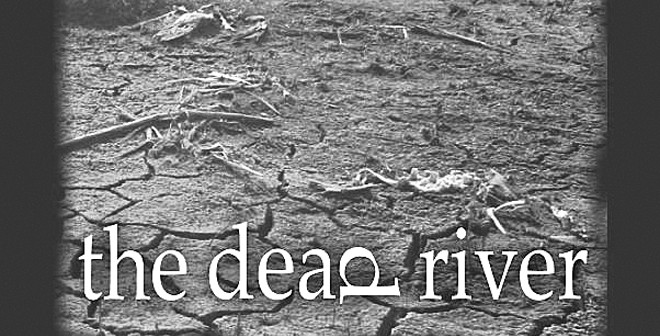
In his first novel, Abdul Qadir Junejo beautifully represents the mythological characters of folktales from Thar

Thar is in limelight, again. But, this time, not for any odd reason.
We have been hearing of deaths of children caused by severe drought in Thar for the last two and a half years. However, not all news coming out of this desert is bad.
Being the repository of culture and folk wisdom, this arid region of southern Sindh is widely considered as nature’s open museum. Buried under the sand dunes are thousands of Thar stories that have not been told in the international arena.
Abdul Qadir Junejo -- playwright, Sindhi fiction writer and septuagenarian Thari -- represents colours of his native land in his debut English novel, The Dead River. It is basically the saga of a lost river, called Hakro in Pakistan and Sarasvati in India, which ran from Sutlej and Yamna. While anthropologists and researchers are busy in outlining the actual course of the dried up river, Junejo has tried to trace its origin through fiction.
Back in 1980s, he had written his best drama serial, Chhoti See Duniya for PTV. One of the serial’s infamous characters was Janu German who knows English language but stays quiet.
A voracious reader of English fiction, Junejo had been planning to write a memorable novel on his motherland Thar for long. In Sindhi, he is indisputably an authority on Thar and its literature.
As they say, "In South Asia, history flows with the rivers" and Hakro is no exception. It was one of the major rivers of Vedic period which dried up in 1900 BCE after giving birth to Indus-Sarasvati culture. While there is a debate going on whether Hakro and Sarasavti are one and the same, Junejo has marvellously juxtaposed myths about Hakro with the historical facts.
Despite being dried up thousands of years ago, Hakro is not a strange word in Sindh. Traces of this lost river are not only geographically identified by the researchers but can be witnessed vividly in the folk songs of Thar. Junejo believes that our literary norms have been heavily dominated by poetry and that is the only reason we lack a substantial and unbiased account of our past - because, in our parlance, history is not about facts but needs. It is Junejo’s labour of love for his native land and its anthropology that is morphed into his novel with a tinge of nostalgia.
Being a master storyteller, Junejo offers a thrilling story which is more like a family saga of his own. Like his favourite novelist Gabriel Garcia Marquez, Junejo has beautifully embodied mythological characters of folktales of Thar besides immortalising some of the real characters of his own family who had a unique knack of telling folktales.
As the renowned scholar Wendy Doniger has rightly said, "myth is smoke of history", Junejo, in his novel, has tried to weave a story out of the smoke of history which has dominated the narrative of Thar and Hakro river.
Stretching the story to present times, Junejo explores every aspect of Thar. Besides sticking to the central theme, he narrates the stories of untouchables, nomads, outcasts, thieves, foot-tracers, camels, snakes, peacocks, norms, traditions, religious harmony and everything that is under the sun in Thar.
He has skilfully portrayed the Thari peoples’ perpetual struggle for survival against all odds -- droughts, rough terrain and hardships. Junejo has compiled, preserved, thousands of years old cultural legacy of Thar by writing this novel. This is what a person can best offer to his motherland. If we slightly modify the words of celebrated Czech writer Milan Kundera, the dead river is an account of Thari peoples’ memories struggle against forgetting.
Content apart, in this Junejo’s first effort of writing in English, many issues of editing have been overlooked. One must be mindful of the role of editors especially when writing in a regional milieu in a global lingua franca.
However, the novel is highly recommended to those who have been to Thar and have been enticed by its cultural diversity, and those who have interest in history and love the rivers.